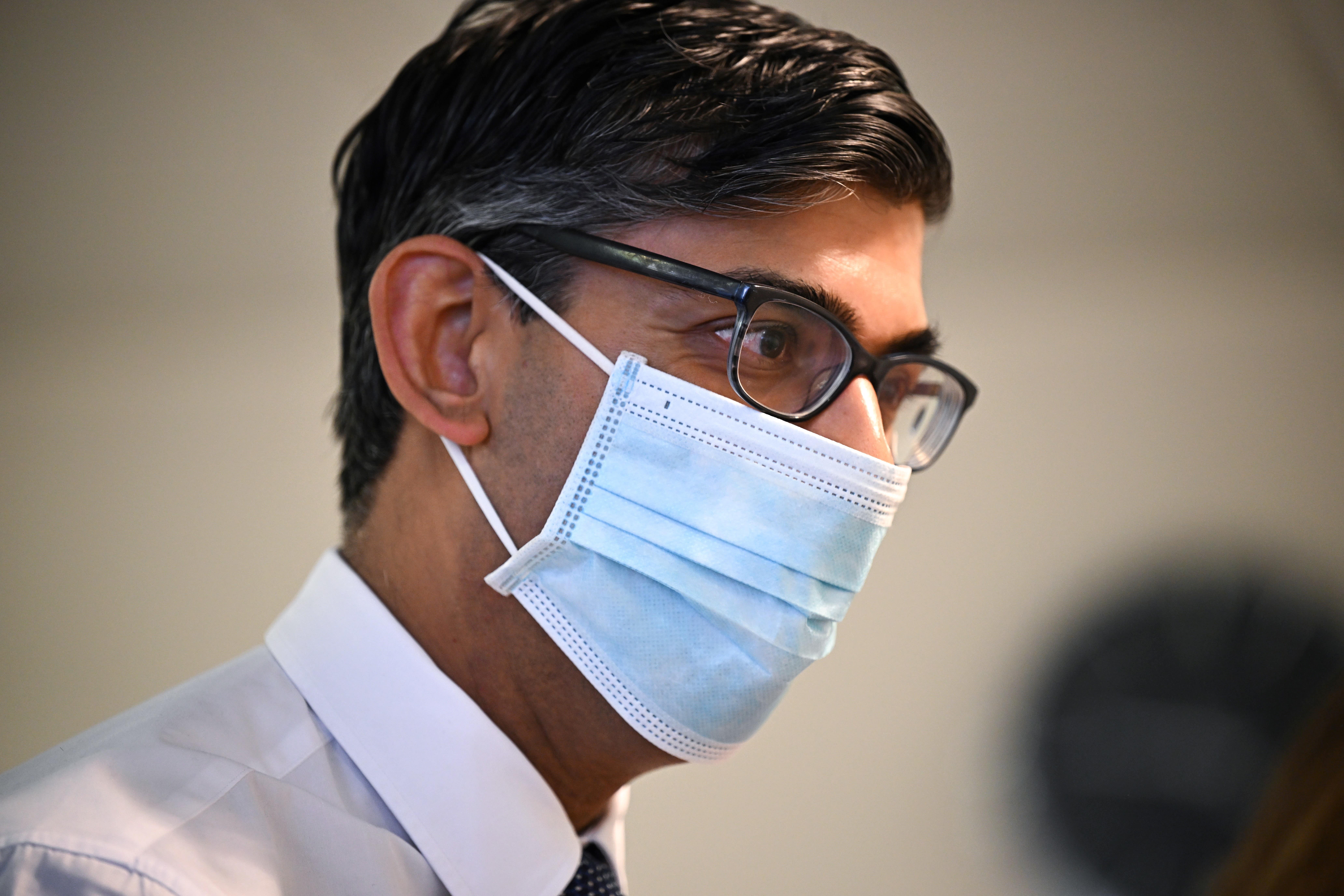Healthcare at home model can help relieve NHS pressures, says Sunak
The Prime Minister visited a health centre in Leeds which brings together specialist skills and equipment to reduce the need for hospital admissions.

Rishi Sunak has told patients and staff at a healthcare centre focused on treating patients at home rather than in hospital that it is a model which can help relieve the current pressures on ambulances and emergency departments.
The Prime Minister chatted with 75-year-old Pauline Burke and her carers – husband Patrick and daughter Emma – when he visited Rutland Lodge Medical Practice in Leeds on Monday morning.
The family said the approach developed by Leeds Community Healthcare, which brings together a multi-disciplinary team and specialist skills and equipment to reduce the need for hospital admissions, had helped Mrs Burke recover faster from a hip operation 12 months ago.
Her daughter told the Prime Minister, who was accompanied by social care minister Helen Whately, that the care at home had helped her mother keep her independence, and her father said it was like having a hospital at their house.
Mr Sunak said to them: “It’s a wonderful facility here, isn’t it?
“What we’ve been talking to people about is trying to figure out how can we get people treated exactly where they need to be. And not everybody needs to be in hospital – they would prefer to be either at home or closer to home.”
The Prime Minister told the family: “It works better for your mum, but it also works better for the hospitals because then they’ve got beds free.”
He added: “Now Helen and I have to figure out how do we replicate this model in more places so we can treat more people like your mum at home, we free up the beds in hospitals which would ease some of the pressures that we are all seeing with ambulance and emergency departments.
“The reason we’ve got some of that is just because we’ve not got enough people who can be at home, being treated at home or in the community.”
He told Mrs Burke: “You look really well, which is great” and the pensioner said she is helped by her two daughters as well as her husband.
The Prime Minister replied: “That’s like me, I have two daughters. You’ll have to give me some tips.”
Mr Sunak then met a number of nurses and other specialists who work at the centre to help people at home and they explained the centre’s virtual ward.
Leeds currently has 35 patients on the virtual ward who would otherwise be in hospital.
Listening to how it works, Mr Sunak said: “It’s fantastic. Thank you for what you’re doing.”
He added: “Part of the reason Helen and I are here is, following up from the session we had on Saturday, finding places where people are doing things differently and better and making a real difference, which you guys are doing.
“It’s the type of model that we just need to do more of, because it is so powerful.”
He told them: “Who doesn’t prefer to be at home if they can be at home?”
Caroline McNamara, clinical lead for adult services at Leeds Community Healthcare NHS Trust, said: “I think it’s really important the Prime Minister and the minister for social care have visited us in Leeds today.
“He’s been able to see really good examples of how community services support patients to be cared for really effectively at home, which reduces unnecessary admissions to hospital but also supports people to come home more quickly.”
She added: “Patients love it. Once they’ve had this care at home they always want to be supported, when it’s safe to do so, at home.
Ms McNamara said the virtual ward in place in Leeds enables advanced nursing, medication, testing and rehabilitation services to be provided at home with 24-hour-a-day care.
“We’re really proud of everything we’ve achieved and we think the rest of the country should be able to follow the same track we’re doing about developing virtual wards.
“But it sits as part of the neighbourhood community services that need the multi-disciplinary teams working hand in glove with primary care and social care. It needs all those components working together.”
Ms McNamara went on: “It really is a tremendous support for people, being able to come home quickly or avoid being admitted in the first place.
“A hospital is not the ideal environment for an old, frail person to be in.
“They tend to recover more quickly when we can support them in their own home, and that also avoids beds being blocked in hospital.”
She added: “We’re currently supporting 35 people. We can go up to 37. We do that in conjunction with our geriatrician colleagues from the acute hospital in Leeds.
“So, every day when we review these really quite poorly people, we are making sure that we deliver very effective healthcare – supporting them with all their needs, not only healthcare but social needs.”
Bookmark popover
Removed from bookmarks